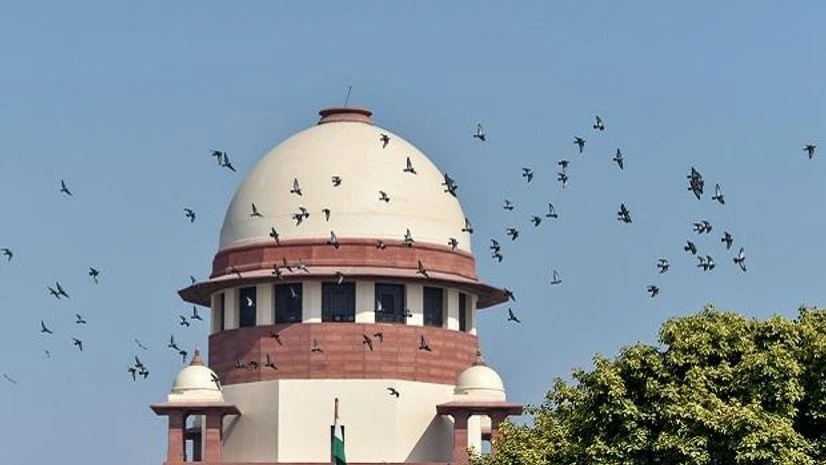The Supreme Court Friday ordered that prisoners, who were released by the high powered committees (HPCs) of states during the second wave of COVID-19 following its May 7 directions, will not be asked to surrender until further orders.
The top court also directed the state governments and their HPCs to file within five days the norms or the guidelines being adopted by them in implementing the order on release of prisoners for decongesting jails during the second wave of the contagion.
A three judge special bench headed by Chief Justice N V Ramana gave examples of Haryana and Tripura HPCs saying they have been considering aspects such as old age and co-morbidities of prisoners, besides other grounds, for releasing them.
The top court also asked the National Legal Services Authority (NALSA) to file a report after getting details from states' HPCs about the norms followed by them in implementing the May 7 order.
So far as the prisoners, who have been released by the high powered committees following the order, should not be asked to surrender back to jail till further orders, the bench said.
At the outset, senior advocate Dushyant Dave, who is assisting the bench as amicus curiae, said that he has been getting information from some lawyers that prisoners, who have been released pursuant to May 7 order during the second wave, are being asked to surrender back.
Dave said the states be restrained from asking the released prisoners to surrender back for some time in view of the threat of third wave of the pandemic.
More From This Section
We have not reached that stage where people, who have been released, should be sent back, the bench said, adding that it wanted to know as to how it's May 7 order has been implemented by states.
The guidelines, being adopted by HPCs of states, should be uniform across the nation, it observed.
Solicitor General Tushar Mehta said the HPCs should place the guidelines before the bench.
The bench, which has now fixed the case for hearing on August 3, said that the litigants having individual grievances may give their applications to the amicus curiae for necessary action.
On March 16, 2020, the top court had taken suo motu cognisance of overcrowding of prisons across the country and said it is difficult for jail inmates to maintain social distancing to prevent the spread of coronavirus.
It, on March 23, 2020, had ordered all states and UTs to constitute high-powered committee (HPC) to consider releasing on parole or interim bail prisoners and the under trials for offences entailing up to 7-year jail term to decongest prisons in the wake of coronavirus pandemic.
It had also directed states that the HPC shall consist of (i) Chairman of the State Legal Services Committee, (ii) the Principal Secretary (Home/Prison) by whatever designation is known as, (ii) Director General of Prison(s), to determine which class of prisoners can be released on parole or an interim bail for such period as may be thought appropriate.
Later, the bench headed by the CJI took note of "unprecedented surge" in COVID-19 cases again and on May 7 this year ordered the immediate release of prisoners who were granted bail or parole last year.
It observed that the decongestion of prisons housing around four lakh inmates across the country is a matter concerning "health and right to life" of prisoners and police personnel.
All those who were allowed to go out on bail in March last year by the high-powered committees of states and Union Territories be granted the same relief without any reconsideration to avoid delay, the top court had said.
It had said the decongestion of prisons housing around four lakh inmates across the country is a matter concerning "health and right to life of" prisoners and police personnel.
"Further we direct that, those inmates who were granted parole, pursuant to our earlier orders, should be again granted parole for a period of 90 days in order to tide over the pandemic," it had said.
(Only the headline and picture of this report may have been reworked by the Business Standard staff; the rest of the content is auto-generated from a syndicated feed.)

)
